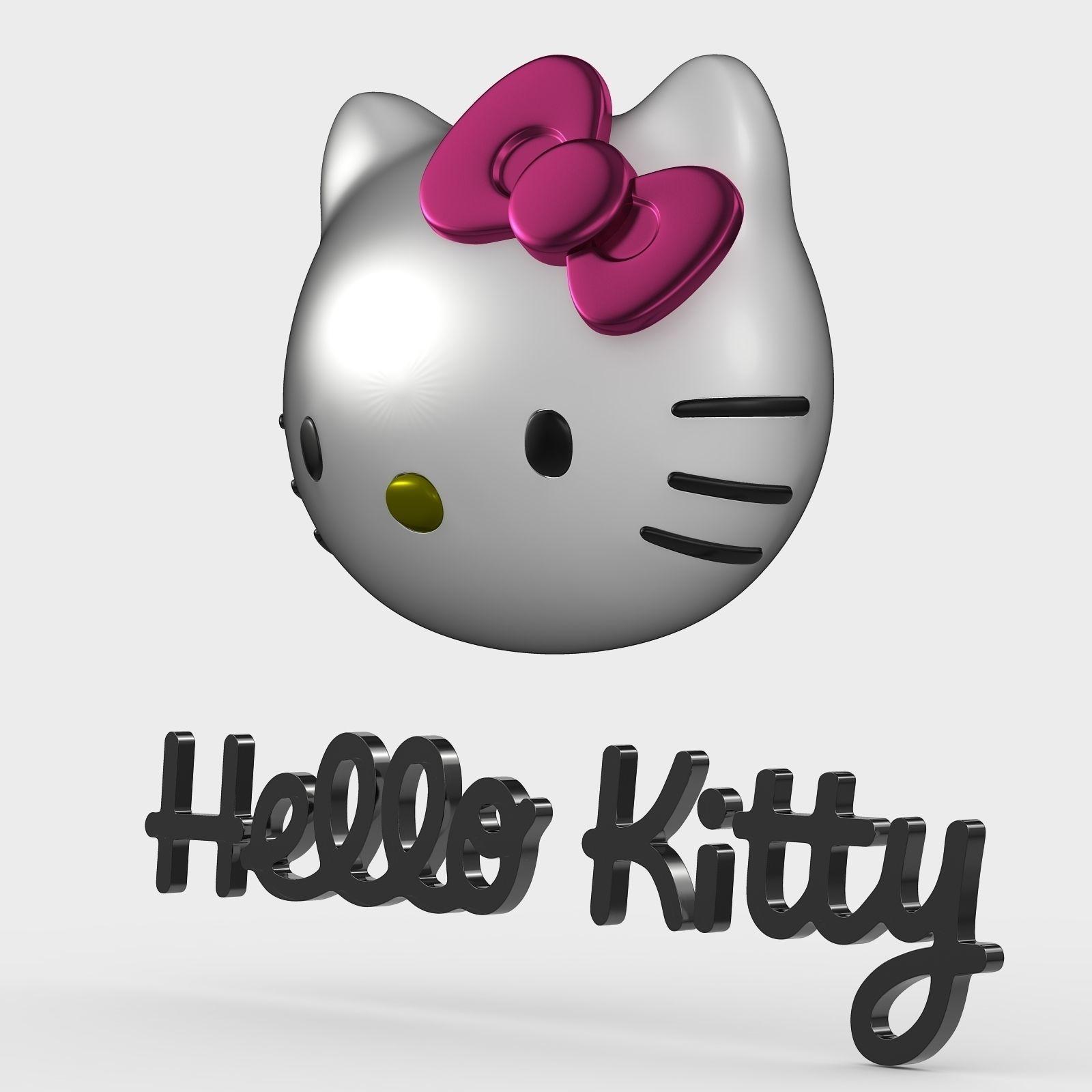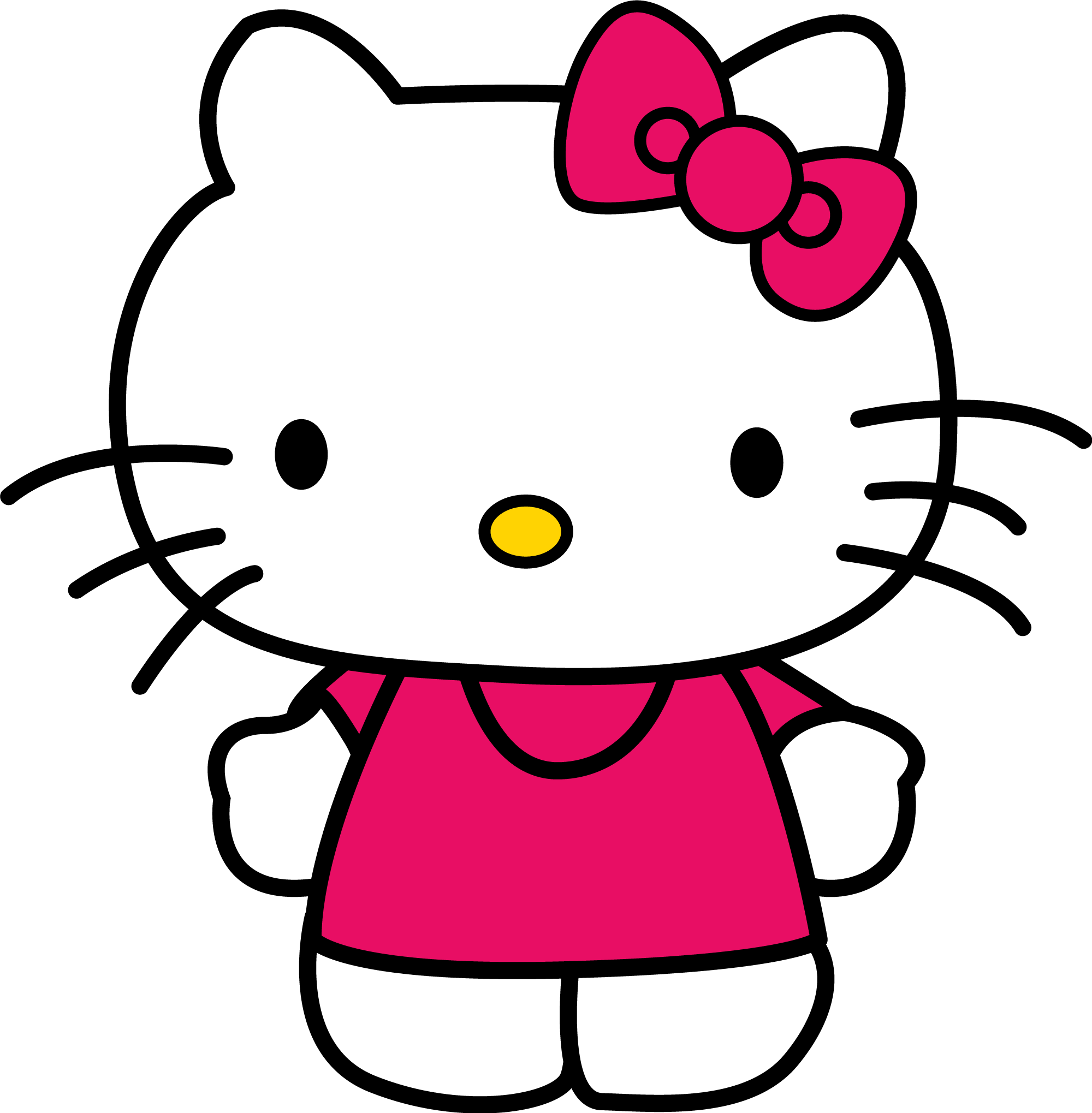Since her debut in 1974, Hello Kitty has become a global phenomenon, captivating millions of fans across the world. Her cute, iconic design and timeless appeal have made her one of the most recognizable characters in pop culture. But how exactly was Hello Kitty created? What inspired her design, and how did she evolve into the cultural icon we know today? This article dives deep into the origins of Hello Kitty, exploring her creation process, design inspiration, and the factors that contributed to her enduring popularity.
Hello Kitty's journey began in Japan, a country renowned for its love of kawaii (cute) culture. The character was born during a time when Japan was experiencing a surge in consumer culture, and companies were looking for unique ways to appeal to younger audiences. Sanrio, the company behind Hello Kitty, saw an opportunity to create a character that would resonate with children and adults alike.
This article will take you through the fascinating story of Hello Kitty's creation, from her early sketches to her global domination. We'll explore her design inspiration, cultural impact, and the legacy she has left on the world of pop culture. Let's dive in!
Read also:How Old Is Michael Phelps Wife A Comprehensive Guide To Nicole Johnson Phelps
Table of Contents:
- Hello Kitty's Biography
- The Creation Process
- Design Inspiration
- Early Years and Initial Reception
- Global Expansion
- Cultural Impact
- Business Strategy Behind Hello Kitty
- Challenges Faced
- Hello Kitty in Modern Times
- The Future of Hello Kitty
Hello Kitty's Biography
Hello Kitty, whose full name is Kitty White, was born on November 1, 1974, in London, England. Despite her British origins, she was created by a Japanese company, Sanrio, and has since become synonymous with Japanese pop culture. Below is a brief overview of her personal details:
| Name | Hello Kitty (Kitty White) |
|---|---|
| Date of Birth | November 1, 1974 |
| Place of Birth | London, England |
| Age | 5 years old (perpetually) |
| Height | 5 apples tall |
| Weight | 3 apples |
| Family | Mama, Papa, and twin sister Mimmy |
| Hobbies | Traveling, music, and baking |
The Creation Process Why Was Hello Kitty Created?
Hello Kitty was created as part of Sanrio's strategy to expand its product line and appeal to a wider audience. In the early 1970s, Sanrio was primarily known for its plush toys and accessories. The company wanted to create a character that would stand out in a crowded market and become a symbol of cuteness and innocence.
Initial Sketches and Design
The idea for Hello Kitty came from the mind of Yuko Yamaguchi, a designer at Sanrio. She drew inspiration from British culture, particularly the fashions and aesthetics of the 1960s and 1970s. The character's iconic design features a round face, large eyes, and a simple bow on her left ear. Interestingly, Hello Kitty does not have a mouth, which was a deliberate design choice to allow fans to project their own emotions onto her.
Design Inspiration
Hello Kitty's design was heavily influenced by British culture, particularly the charming aesthetics of the 1960s and 1970s. The character's name itself is a nod to Lewis Carroll's famous novel "Alice's Adventures in Wonderland," which features a cat named Dinah. Additionally, the decision to give Hello Kitty a British background was a strategic move to appeal to international audiences.
- Round Face: Represents innocence and simplicity.
- Large Eyes: Conveys curiosity and wonder.
- Red Bow: Adds a touch of elegance and femininity.
Early Years and Initial Reception
When Hello Kitty first debuted in 1974, she appeared on a vinyl coin purse. The character quickly gained popularity in Japan, and Sanrio began expanding its product line to include a wide range of Hello Kitty-themed items. Initially, Hello Kitty was marketed primarily to young girls, but her appeal soon extended to older audiences as well.
Read also:Exploring The Allure Of Old Hindi Movies A Journey Through Time
Challenges in the Early Years
Despite her early success, Hello Kitty faced several challenges in her early years. Some critics dismissed her as "too cute" or "too simple," questioning whether she would have lasting appeal. However, Sanrio's commitment to quality and innovation ensured that Hello Kitty continued to evolve and adapt to changing market trends.
Global Expansion
By the late 1980s, Hello Kitty had begun to gain international recognition. Her appeal transcended cultural boundaries, and she became a beloved character in countries around the world. Sanrio's strategic partnerships with global brands helped to further expand Hello Kitty's reach, making her one of the most recognizable characters in pop culture.
Key Markets
- Asia: Hello Kitty's popularity in Japan quickly spread to other Asian countries, where her cute and approachable design resonated with consumers.
- North America: In the 1990s, Hello Kitty became a staple in North American markets, appearing on everything from school supplies to fashion accessories.
- Europe: Hello Kitty's British origins made her a natural fit for European markets, where her charming design and nostalgic appeal continue to captivate fans.
Cultural Impact
Hello Kitty's influence extends far beyond her products. She has become a symbol of kawaii culture, representing the values of cuteness, kindness, and simplicity. Her impact on fashion, art, and entertainment has been profound, inspiring countless designers, artists, and creators around the world.
Collaborations and Partnerships
Over the years, Hello Kitty has collaborated with numerous high-profile brands, including Moschino, MAC Cosmetics, and Swarovski. These partnerships have helped to elevate her status as a cultural icon, bringing her to new audiences and expanding her reach into luxury markets.
Business Strategy Behind Hello Kitty
Sanrio's success with Hello Kitty can be attributed to its innovative business strategy. The company has consistently focused on quality, creativity, and customer satisfaction, ensuring that Hello Kitty remains relevant and appealing to fans of all ages.
Key Factors in Success
- Product Diversity: Sanrio offers a wide range of Hello Kitty products, from everyday items to luxury goods.
- Brand Partnerships: Collaborations with global brands have helped to expand Hello Kitty's reach and appeal.
- Community Engagement: Sanrio actively engages with its fans through events, social media, and fan clubs.
Challenges Faced
Despite her immense popularity, Hello Kitty has faced several challenges over the years. One of the biggest challenges has been maintaining her relevance in a rapidly changing market. Sanrio has addressed this by continuously innovating and adapting to new trends, ensuring that Hello Kitty remains fresh and exciting.
Competition in the Market
In recent years, Hello Kitty has faced stiff competition from other cute characters and brands. However, her timeless design and strong brand identity have helped her maintain her position as a leader in the kawaii culture space.
Hello Kitty in Modern Times
In the modern era, Hello Kitty continues to thrive, thanks in part to her strong presence on social media and digital platforms. Fans around the world share their love for Hello Kitty through photos, videos, and fan art, creating a vibrant global community.
Embracing Technology
Sanrio has embraced technology to enhance the Hello Kitty experience, launching apps, games, and virtual reality experiences that allow fans to interact with the character in new and exciting ways.
The Future of Hello Kitty
Looking ahead, the future of Hello Kitty looks bright. Sanrio plans to continue expanding its product line, exploring new markets, and leveraging technology to enhance the Hello Kitty experience. As long as there is a demand for cute, approachable characters, Hello Kitty is sure to remain a beloved icon for generations to come.
Expanding into New Markets
Sanrio is actively exploring new markets, particularly in emerging economies, where the demand for kawaii culture is growing rapidly. By tailoring its products and marketing strategies to meet the needs of these markets, Sanrio aims to further expand Hello Kitty's global reach.
Kesimpulan
Hello Kitty's journey from a simple coin purse to a global cultural icon is a testament to the power of creativity, innovation, and perseverance. Her timeless design, strong brand identity, and enduring appeal have made her one of the most beloved characters in pop culture. As we look to the future, it's clear that Hello Kitty will continue to captivate fans around the world for years to come.
We invite you to share your thoughts and experiences with Hello Kitty in the comments below. Do you have a favorite Hello Kitty product or memory? Let us know! And don't forget to explore our other articles on pop culture and design for more fascinating insights.
References:
- Sanrio Official Website
- Forbes - "How Hello Kitty Became a Global Phenomenon"
- TIME Magazine - "The Surprising Story of Hello Kitty"


